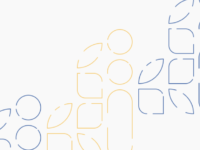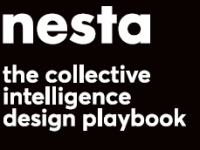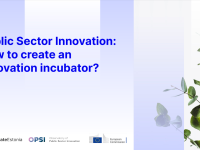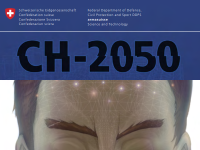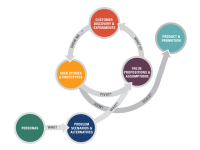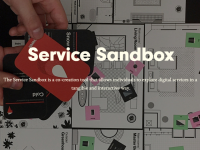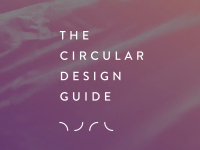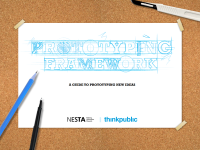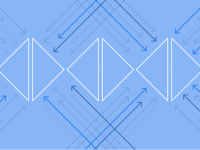Toolkit Navigator
A compendium of toolkits for public sector innovation and transformation, curated by OPSI and our partners around the world

This Handbook for Working Innovatively in Public Administration guides you through the different phases of an innovation process. It contains templates and working documents tailored to the needs of public administrations. They explain various innovation methods, describe what is needed to apply these methods, detail how to actually implement these methods, and highlight what results can be expected. From preparation and team building, to research and brainstorming, to the development and…
The toolbox for designing digital services is intended to help public service owners, managers and other interested parties understand the design process and includes tools to make the process smooth. The process is described both in Estonian and English but tools are only in Estonian, which can be machine translated. The resource includes guidance on preparation and building a service team, understanding and choosing a focus, problem identification and solving, testing solutions, development of…
The Collective Intelligence Design Playbook, created by Nesta, offers a wide range of tools, tactics and methods to engage collective intelligence to solve societal challenges. Through practical instructions and case studies, the Playbook presents ways to orchestrate diverse groups of people, data and technology.
It is designed to be applied by teams or groups and features an introduction to help users understand the scope and potential of collective intelligence, practical guidance to sustain…
In 2020 and 2021, OPSI developed the idea of an Innovation Incubator jointly with the European Commission through the Horizon 2020 project. The goal of the incubator has been to to maximize the spread of learning and knowledge from initiatives to a larger ecosystem of actors. The OPSI-convened incubator has worked to connect experts and practitioners to provide insights and validation of transformative work, reduce duplication, and streamline replication efforts. The primary principle of the…
The transition game is an adapted version of “Le jeu de la transition” developed by the French Think Tank FING (Fondation Internet Nouvelle Génération) and adapted to a national defence environment, covering topical areas such as cyber and information warfare, man-machine teaming, and situational awareness and reconnaissance.
It guides groups through several steps:
1) Think about how different context factors and "internal tensions" shape today's state (ordering principles, norms,…
The Venture Design Process offers set of templates, tutorials, and templates for systematic execution of continuous design and delivery. It covers the phases: Personas, Problem Scenarios & Alternatives, Value Propositions, Assumptions & Experiments, Customer Discovery & Experiments, User Stories & Prototypes, Product & Promotion, as well as modules covering agile management and business model generation. The resource is targeted at private sector entrepreneurs and focuses on digital products and…
The Service Sandbox is a visual, playful, co-creation tool that allows individuals to explore digital services in a tangible and interactive way. The sandbox can be used to test an existing service or to create new ones. The resource is oriented toward designing interior environments, especially digitalising environments, but could be used more broadly. The tool consists of three phases (build, ideate and define), plus a pitch template for taking the process one step further. According to the…
The current big shift in management - both public and private - is from linear models to circular models. This resource was designed to help innovators create more elegant, effective and creative solutions for circular economy. This resource allows users to explore new ways to create sustainable, resilient, long-lasting value in the circular economy. While it is oriented towards private sector manufacturing and products, it can also be helpful for public sector organisations to think about…
This toolkit is a guide on how to carry out prototyping and testing. The purpose of the process is to test and improve the ideas at an early stage, before committing a lot of resources to it. The tool provides a step by step guide with simple descriptions on the techniques in each phase and things to watch out for.
The prototyping process is divided into the phases:
- Doing the Groundwork
- Prototyping phase 1
- Prototyping phase 2
- Learn and Evaluate.
The document contains short…
The Design Sprint is a methodology for quickly solving problems through developing a hypothesis, prototyping an idea, and testing ideas with users. Design Sprints quickly align teams under a shared vision with clearly defined goals and deliverables. The Design Sprint methodology was developed at Google from a vision to grow user experience (UX) culture and the practice of design leadership across an organisation. The length of time for Design Sprints will be based on the goals and the needs of…


